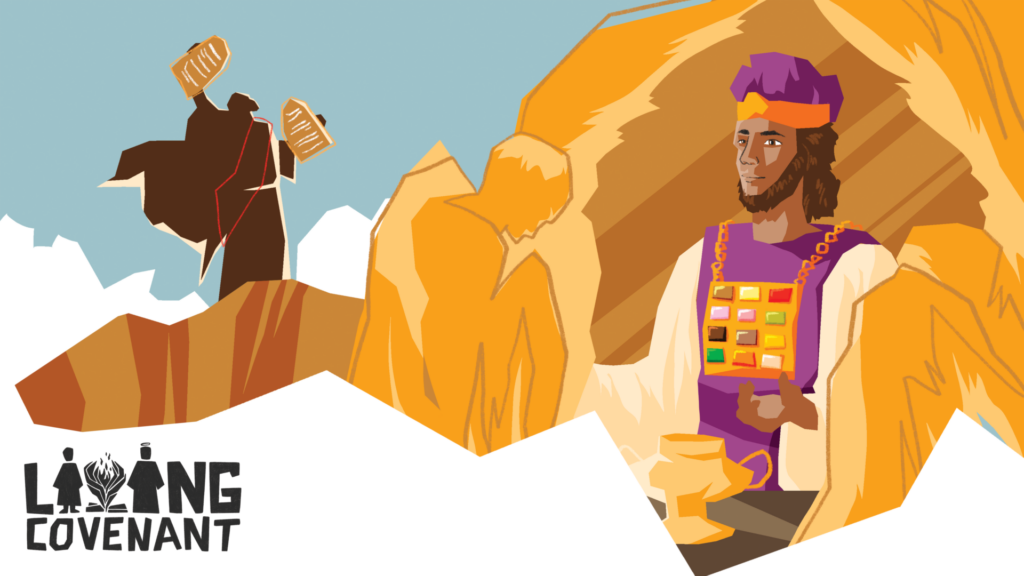If you wanted to discourage someone from reading a book, you might consider calling it “Numbers”, which is about as inspiring as “Telephone Directory”. Of course, if you were into number theory or mathematics you may feel differently. Yet despite the somewhat uninspiring title of the fourth book of the Bible, there lies within it a significant and surprisingly relevant message for today.
The names given to the first five books of the Bible were derived from the Greek translation of the Hebrew Bible, that Jesus would have been familiar with, called the Septuagint. These names were descriptive titles based on the books’ themes or content rather than the names from the translated Hebrew Bible. “Numbers” comes from the Greek Arithmoi, which was chosen because of the two major censuses the book describes. However, the names for the first five books in the Hebrew Bible, also known as the Pentateuch or Torah, were derived from key words or phrases in the opening verses of each book. While using a thematic name for each book seems sensible, it risks redirecting thoughts that may have existed in the original titles.
So, what is the Hebrew name of the book we call “Numbers”? Interestingly, it is called Bemidbar, which means “In the wilderness”, even though the book contains a diverse array of elements. These elements include narratives, laws, census lists, itineraries, vows, purifications, sacrifices, sundry battles and rebellions. The book even features a misguided prophet with a talking donkey! Over the years there have been several attempts at making sense of the haphazard subject matter contained in the book with varying degrees of success. However, one relatable concept was developed by theologian and author Dennis Olson who suggested the entire book is a transition from “The Death of the Old and the Birth of the New”1. This division splits the book into two main parts separated by the census at the start and the end of Israel’s wilderness experience (Numbers 1, 26).
The rebirth from “Old to New” for Israel was difficult as revealed by their sometimes chaotic relationship with God throughout the book. Yet, in the end, they became the structured and coherent assembly that Balaam, the prophet astride his talking donkey, tried in vain to curse. God effectively took a group of slaves, captivated by Egypt’s spiritual chaos and enticements, and transformed them into something unique and new.
So, beyond its linguistic history, the Hebrew title reveals something profound about how God shapes His people. This transformative wilderness experience is more than just an inconvenient historical detour. It is a timeless space for renewal that modern society often subordinates to instant gratification and public acclaim.
The wilderness as preparation
One commentator suggests that “Our lives are lived mostly in the long and ordinary stretches of wilderness, not in the revelations, epiphanies and dramatic moments of Exodus.”2 Sadly, we are often led to believe our lives are only valuable when impressive to others. Modern culture acts like a form of slavery, with its endless pursuit of approval. This false narrative ignores the wilderness entirely. Instead, it drives us into a hyper-competitive spotlight where our lives are defined by unending “revelations, epiphanies and dramatic moments”—measured by views and likes.
The book of Numbers shows us that the purpose of life is not derived by the sum of our highs, but from the meaning we find as we roam through the wilderness! Indeed, it was through the wilderness, not on the farm or in the city, where Israel matured from childhood into God’s representatives. As such, instead of understanding Israel’s wilderness experience as punishment, it might be helpful to reframe it as preparation. The wilderness was a vehicle to teach patience and reliance in the covenant-faithful God who guided Israel.
While stretches of wilderness can be long and ordinary, life in the wilderness can sometimes slap you in the face, emerging as a crucible of challenge and temptation. Israel’s experience was not a mere footnote. As suggested by Olson, it highlights the wilderness as a place of painful rebirth where the inconsistent frailty of humanity collides with divine aspirations. It is through the lows that the “death of the old” occurs, paving the way for the birth of the new.
Most of us would prefer not to go through the wilderness. Even Israel would have preferred to enter the Promised Land without going through the wilderness. Yet, when we review the history of Israel as they traversed the wilderness, the purpose of that experience becomes more evident. Psychiatrist and Holocaust survivor Viktor Frankl understood this principle when he observed that suffering ceases to be mere suffering when it finds meaning.3 Indeed, Israel’s experience not only had meaning and purpose—revealing something about God and Israel—but shows that going through the wilderness is both uncomfortable and necessary.
Apparently, the wilderness is where you get close to God, and according to the book of Numbers, that’s not always a walk in the park and takes time. Incredibly, it was in no-man’s-land where Israel had their most intense and sustained encounter with the transcendent God of the universe. In other words, to encounter the God of everywhere, you need to be nowhere!4
It is the desert’s silence that amplifies God’s voice. This is hardly surprising when we consider Jesus spending time in the wilderness prior to His earthly ministry. Not to mention Elijah confronting the still small voice in the wilderness after the euphoric victory over Baal’s prophets on Mt Carmel (1 Kings 18,19). Interestingly, it was after that wilderness experience that Elijah was ready for the fiery chariot ride to the real Promised Land.
Lessons for today
If our lives have become so focused on the highs, it might be time to take an intentional wilderness detour and unplug from the deafening noise of daily life. We can foster encounters with the transcendent God in simple ways. Try a daily quiet time or a retreat. You could even do a tech fast, inspired by the camping imagery in Numbers.
There may be a temptation to call this “boring”. However, instead of negatively framing this experience, let’s reframe it as an opportunity to take a wilderness jaunt; after all, boredom is the cradle for creativity. Indeed, what if your next “wilderness” moment changes everything?
And when our wilderness wandering includes real trials—like loss or doubt—don’t forget the same God who guided Israel through the wilderness is still active today. As suggested by Frankl, we can draw meaning out of mess and turn temptation into testimony. In the same way, God guided Israel’s experience, turning nomads into nation.
So, let’s reflect on this “book of wilderness”. It includes a divine call to embrace “boredom” in the holy realm of undistracted communion with God. In doing so, we can rediscover and apply the book’s hidden message. The wilderness served as God’s tool to transform a chaotic group of slaves into His people called to reflect His character and government. Ultimately, entry into the Promised Land was only possible through the wilderness.
Boldly step into your wilderness today.
- Olson, Dennis. 1985. The Death of the Old and the Birth of the New: The Framework of the Book of Numbers and the Pentateuch. Brown Judaic Studies 71. Chico, CA: Scholars Press.
- Prager, Dennis. 2024. The Rational Bible: Numbers: God and Man in the Wilderness. Washington, DC: Regnery Faith, 4.
- Frankl, Viktor. (2006). Man’s Search for Meaning. Beacon Press, p. 113.
- Sacks, Jonathan. Numbers: The Wilderness (Jerusalem, Israel: Toby Press, 2017).
Randall Ibbott is a freelance IT consultant on the Central Coast of NSW.






